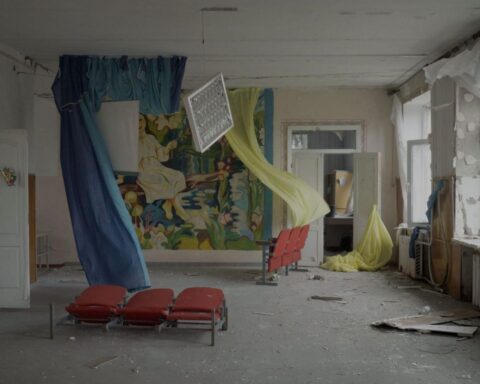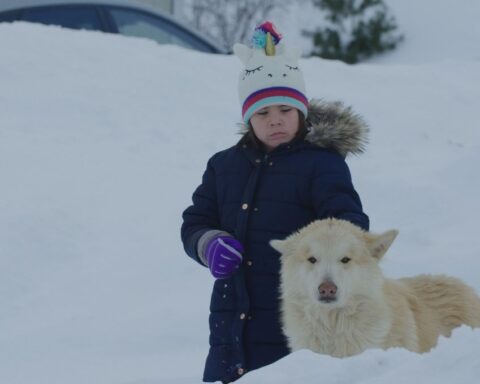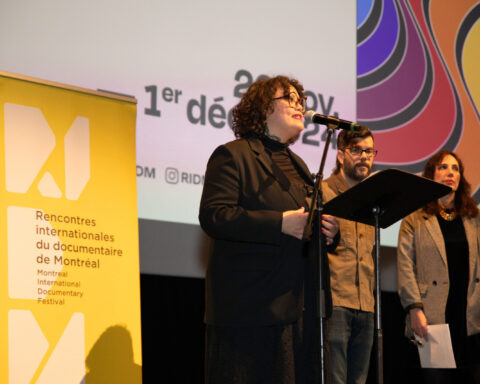Dark Night
(USA, 85 min.)
Dir. Tim Sutton
Like Gus Van Sant’s Elephant, Tim Sutton’s Dark Night is a trance film inspired by mass murder. Elephant depicts a day in the life of suburban teens in the hours and moments leading up to the shooting in their high school. Dark Night analogously portrays the lives of disparate characters just before a lunatic gunman with a Batman fixation murders people during a screening of Christopher Nolan’s The Dark Knight.
Minimising dialogue, the action is set in a world with a placid, even seductive surface, a world presented in pristinely composed long takes and tracking shots. The only narration comes from Montreal singer Maica Amata’s trippy gloom songs.
The characters are mostly young people played by non-professionals who you imagine are enacting versions of themselves. The most traditional doc setup is an interview with a woman (Marilyn Purvis) and her unhappy son (Aaron Purvis). They sit beside each other on a couch reviewing the son’s emotional malaise, but the off-screen interviewer never hones in on a specific reason for the interview, which might be in the aftermath of a major event like a massacre.
Otherwise, the movie tracks small actions that get repeated fetishistically. Aaron plays with a snake. A girl (Anna Rose Hopkins) who seems to be thinking about an entertainment career endlessly snaps selfies in various states of undress, checking out poses and looks. A skater boy (Andres Vega) dyes his hair the same shrieking orange as James Holmes, the Aurora, Colorado murderer. Meanwhile, a veteran of Iraq (Eddie Cacciola) pops off rounds at a shooting range and lovingly fine-tunes his weapons in a movie that highlights virtual guns in POV shootout games. The camera floats off Eddie’s freshly primed real guns and cuts to the interior of a moving car headed somewhere.
Undercurrents of anxiety and intimations of doom haunt Sutton’s film. In a staged and choreographed sequence, a curly-haired boy with cobalt blue eyes so intense they look like a special effect (Robert Jumper) prowls with his rifle over neighbourhood lawns, as if stalking prey. Two girls singing in a living room don’t realise he is at the window outside pointing his gun at them. Sutton also shows us the potential killer’s pov on the girls. (It would be monumentally weird if the sequence was not fiction!) At the film’s penultimate moment, he checks out a Caped Crusader mask in a mirror.
An emotional and spiritual vacuum (the film doesn’t emphasise money problems) leads to an ennui that can breed hopelessness, meaningless time filling, and violence. Dark Night is even more despairing than Elephant, which bathes some of its characters in heavenly light, and Andrea Arnold’s American Honey, which celebrates the energy in the sketchy lives of its music-loving kids.
For sure, all three movies make sense in a world that birthed the rise of Donald J. Trump, the real-life dark knight with dyed orange “hair.”











